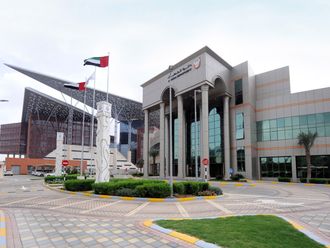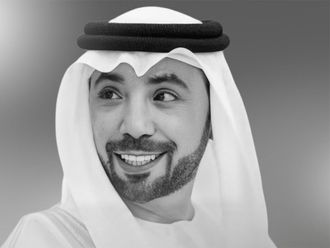Dubai: For a city to win the rights to host the World Expo means that the construction sector will not have any trouble filling up its order book over the better part of a five-year period. It usually takes that long for the iconic builds conceived to make it past the drawing boards to take their place at the actual Expo venue.
Dubai has been giving hints of what the attractions will be for 2020, each of which are designed to portray the city and its society on the global stage. The authorities have also, simultaneously, made it clear that what will be built for the Expo 2020 will have its significance well beyond that. For the city’s planners, Expo 2020 is a means to a much longer term goal.
This is where the recent project confirmations of the Dh20 billion plus Mall of the World and the multi-theme park and attractions bearing Dubai Parks & Resorts, both along the Shaikh Zayed Road corridor.
For the local construction and projects sector, it offers a canvas that is unprecedented in scale. Usually, a host city would limit itself to creating the attractions at the venue itself, and conforming to a particular theme for that year’s Expo. To that would be added the investments on topping up the infrastructure needs to help meet the expected surge in visitor numbers.
But Dubai is intent on creating much more. Some of the components of the world’s largest mall and entertainment destination in the making is expected to be ready by 2020. But it’s not just activity centred around the mall and the Expo site.
Off the Deira coast, the Nakheel led Deira Islands development would be taking shape. Elsewhere in the city, there would be a full-scale ramping up projects at locations such as The Lagoons, Mohammad Bin Rashid City, and those from private developers.
Can the city’s construction sector play its part by delivering quality and on time? “While there has been limited impact so far, the Expo 2020 master plan is due to be submitted in Q3 of 2015,” said Christopher Seymour, Partner and UAE Head of Property at EC Harris, the specialist consultancy. “It is expected that primary and secondary development activity will increase around that time.
“The Expo 2020 site in isolation will be well within the delivery capabilities of the existing supply chain to handle. The issue is more around the large number of projects which are coming to the delivery stage at the same time both in Dubai, across the UAE and also the wider region.”
According to EC Harris’ projections, the inflationary pressure on building material prices could be around 6 per cent by the end of the year, and that it could continue into the next as well.
“The real pressure is expected to gather around 2017 to 2019, where the regional major project workload will create a significant demand on labour and materials and creating further upward pricing pressure.
“The UAE is well placed to deal with the market pressures since the sophistication of procurement is more mature in this location. It will not, however, be immune to the effects of a heated market and proper planning … and a professional team will be the key to securing the required project outcomes.” (Qatar too would be getting into the business end of the completion phase for its 2022 World Cup infrastructure.) According to Seymour, “The UAE’s construction sector will see much of the resources, in terms of plant and labour, being absorbed as the industry returns to solid growth. Many of the major schemes — a number of which were triggered by the Expo 2020 announcement — are progressing from the planning stage to delivery and hence the hard work of materialising the developments is beginning on-site.”











